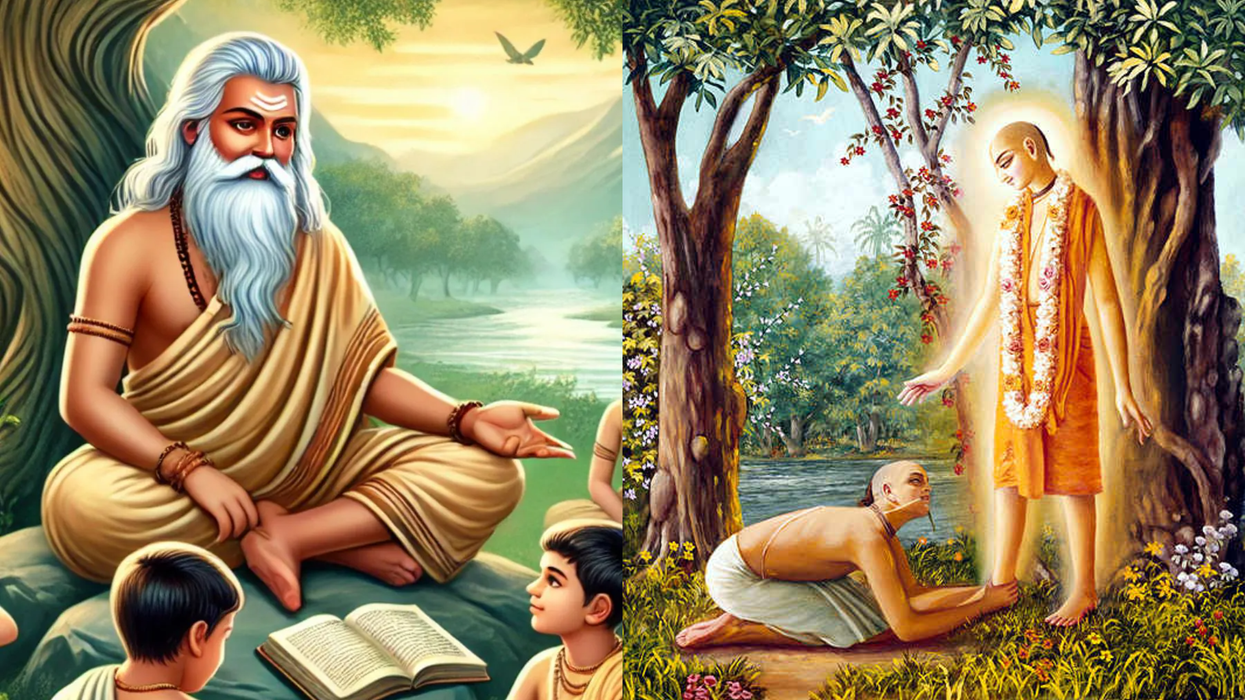by LAUREN CODLING
A BARRISTER who gave up her 20-year career to open a restaurant chain has urged other older women to continue pursuing their dreams, despite potential reservations about their age.
Nisha Katona, 45, is the founder of Mowgli Street Food restaurants, a brand that prides itself on its selection of healthy, authentic Indian food. Katona, who was the first-ever female Indian barrister in Liverpool, gave up her successful law career to kickstart the brand in 2014.
Mowgli Street Food now has eateries in Liverpool, Manchester, Birmingham and Oxford, with several more branch openings in the pipeline.
The businesswoman told Eastern Eye she wanted women to realise that anything is possible, at any age.
“Many women get to a stage where their children have grown and the only thing to look forward to now is menopause,” she said. “But there is a whole new horizon out there – I got a second wind of life which started in my 40s.”
Katona is hopeful her story will encourage others who may worry they are at a dead end to realise they can still pursue their dreams.
“I had a dream and I sacrificed everything, risked everything to take it to the market and it worked,” she said. “It was the right time to start it when I did.”
The entrepreneur, who revealed she eats in Mowgli at least once a day, said it was while she was writing down recipes for her children that the idea occurred to her.
“I think we realise that when our first generation dies out, they will take their recipes with them and it is one of the few things we can hang onto,” she said. “I have learnt to cook from my aunties, mum and grandma so I was thinking about passing them [recipes] onto my daughters.
“And then I thought, if I’ve been addicted to this food for over 40 years, then maybe others will be too.”
The menu offers a range of dishes, including the infamous yogurt chat bombs (referred to as the ‘heart of Mowgli’); the Mowgli chip butty consisting of roti wraps and turmeric fries; the ‘iconic’ angry bird, chicken thighs marinated and roasted in tandoor spices; and the staff favourite, the Mowgli paneer.
Katona has recently released her third cookbook, Mowgli: Stories and recipes from the Mowgli Street Food restaurants, which details the steps to imitate the dishes from the eatery’s menu.
“Each recipe has a face and a story that brings it alive,” Katona enthused. “It is like introducing a member of the family – dishes become members of the family for our clients. It’s so they can understand it and they can tell people about it.”
In hiring for the restaurant, Katona is keen to emphasise the Mowgli motto – intelligence,
grace and graft.
“Those are the three critical things we look for,” she revealed.
Intelligence is required, as the food has a deep philosophy behind it which needs understanding, Katona explained. Grace, as aggression will not be tolerated in the Mowgli
environment; and graft is essential as Katona said she needs people who come alive as the restaurant gets busier.
“The busier it gets, some people get tired and they want to get out, but they shouldn’t
be in Mowgli,” she asserted.
Katona is currently starring alongside celebrity chef Tom Kerridge as a judge on the BBC Two series Top of the Shop. She is also busy preparing for the opening of the latest Mowgli branch in Leeds, as well as finalising eateries in Manchester and Cardiff.
The mother-of-two said despite her hectic schedule, she still takes time to cook dinner for her two teenager daughters.
Knowing she is providing them with nutritious foods which can help them grow is particularly important for the chef.
“You’re putting food into their body that they will grow from,” she said. “If you put c**p food into them, they can’t concentrate, and you are breaking them inside.”
At her happiest in the kitchen, she confessed she is most relaxed when she gets her
favourite chopping board out and cooks for the people she loves.
“That’s what I was made for,” Katona said.
Looking to the future, are there any plans to expand the Mowgli brand abroad?
“No, the thought frightens me,” she joked. “I’m still a new businesswoman so I need to learn, and I need to understand it better. Right now, my priority is getting the UK right first.”
Mowgli: Stories and recipes from the Mowgli Street Food restaurants is available now.





 There’s deep healing in the communityiStock
There’s deep healing in the communityiStock










 From ancient sages to modern-day Gurus, their influence on society continues to inspire and transformiStock/Mahabharata
From ancient sages to modern-day Gurus, their influence on society continues to inspire and transformiStock/Mahabharata The relationship between Guru and disciple has been central to the evolution of Hindu philosophy and practiceiStock/Mahabharata
The relationship between Guru and disciple has been central to the evolution of Hindu philosophy and practiceiStock/Mahabharata The reverence for spiritual leaders remains a cornerstone of Hindu culture, transcending time and traditioniStock/Mahabharata
The reverence for spiritual leaders remains a cornerstone of Hindu culture, transcending time and traditioniStock/Mahabharata


